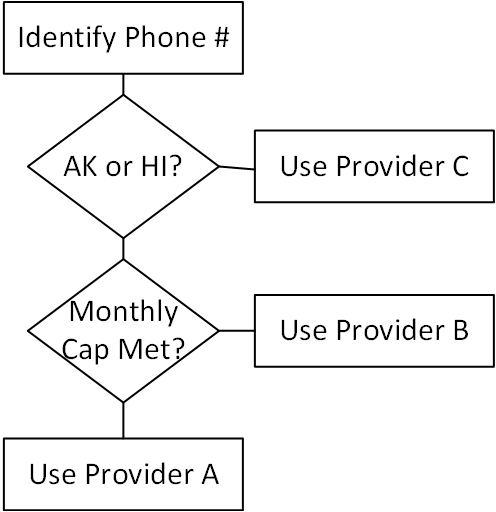Least cost routing is a term that is used to describe how phone calls are routed by phone networks or carriers to get the lowest cost for that specific phone call.
Why use least cost routing?
The telephone networks are made up of thousands of different routes, carriers and rate centers. A phone call's path between the calling party (called the “originating party“) and the called party (the “terminating party”) go through telephone exchanges and SIP networks controlled by different companies.
The rates charged by these different companies can vary.
Least cost routing uses databases (and in some cases, machine learning techniques) to determine which route a call should take in order to get the lowest cost for that call.
Least cost routing can be simple (with just a few choices of routes) or complex (with hundreds of different route variations). Let's look at a simple example that a typical call center might implement in their ACD without much difficulty.
Example of least cost routing
Imagine a call center that makes outbound calls on behalf of different clients. The call center has 3 telco providers (“A”, “B”, and “C”).
Provider A has a monthly minimum the call center needs to pay each month.
Provider B is the lowest cost provider for calls to the lower 48 states.
Provider C has the lowest outbound rates on calls to Hawaii and Alaska (which are typically much more expensive!)
A simple least cost routing flow for this call center would look like this:

This example of least cost routing could be implemented using a simple database lookup at the start of each outbound call.
In this simple example, the least cost routing flow lets the call center meet their monthly minimum. Once it is met, the cheaper provider can be used immediately and automatically.
Further, to avoid expensive carriers for Hawaii and Alaska, those calls can automatically be routed to the cheaper provider.
For more complex least cost call routing scenarios, contact us to discuss implementation approaches.
Most modern ACDs provide least cost routing modules or components so that these routing schemes can be easily implemented. A good example is the mod_LCR add-in module for freeSWITCH.

